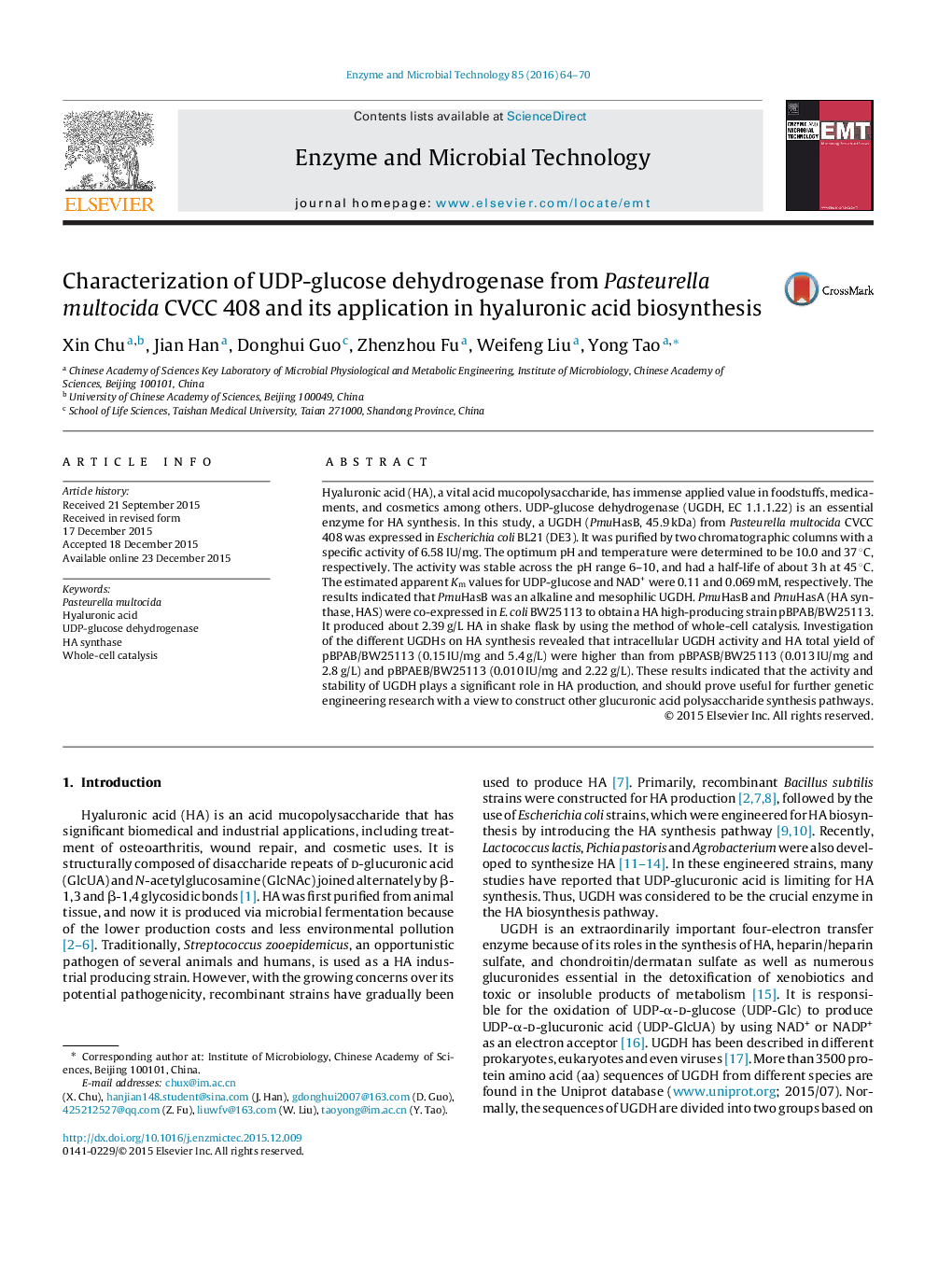| Article ID | Journal | Published Year | Pages | File Type |
|---|---|---|---|---|
| 16873 | Enzyme and Microbial Technology | 2016 | 7 Pages |
•PmuHasB, a highly functional UGDH, was expressed and characterized for the first time.•PmuHasB was introduced in E. coli for enhanced HA production.•The highly active and stable PmuHasB was found to be crucial for HA production.•More efficient whole-cell biocatalysis for HA synthesis was constructed in E. coli.
Hyaluronic acid (HA), a vital acid mucopolysaccharide, has immense applied value in foodstuffs, medicaments, and cosmetics among others. UDP-glucose dehydrogenase (UGDH, EC 1.1.1.22) is an essential enzyme for HA synthesis. In this study, a UGDH (PmuHasB, 45.9 kDa) from Pasteurella multocida CVCC 408 was expressed in Escherichia coli BL21 (DE3). It was purified by two chromatographic columns with a specific activity of 6.58 IU/mg. The optimum pH and temperature were determined to be 10.0 and 37 °C, respectively. The activity was stable across the pH range 6–10, and had a half-life of about 3 h at 45 °C. The estimated apparent Km values for UDP-glucose and NAD+ were 0.11 and 0.069 mM, respectively. The results indicated that PmuHasB was an alkaline and mesophilic UGDH. PmuHasB and PmuHasA (HA synthase, HAS) were co-expressed in E. coli BW25113 to obtain a HA high-producing strain pBPAB/BW25113. It produced about 2.39 g/L HA in shake flask by using the method of whole-cell catalysis. Investigation of the different UGDHs on HA synthesis revealed that intracellular UGDH activity and HA total yield of pBPAB/BW25113 (0.15 IU/mg and 5.4 g/L) were higher than from pBPASB/BW25113 (0.013 IU/mg and 2.8 g/L) and pBPAEB/BW25113 (0.010 IU/mg and 2.22 g/L). These results indicated that the activity and stability of UGDH plays a significant role in HA production, and should prove useful for further genetic engineering research with a view to construct other glucuronic acid polysaccharide synthesis pathways.
